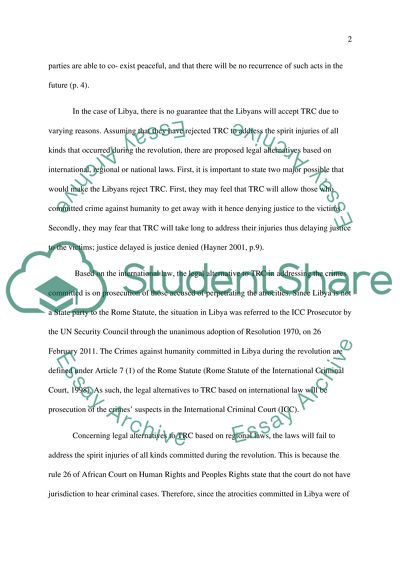Cite this document
(“Addressing human rights abuses in post Gaddafi Libya Essay”, n.d.)
Retrieved from https://studentshare.org/law/1393576-research
Retrieved from https://studentshare.org/law/1393576-research
(Addressing Human Rights Abuses in Post Gaddafi Libya Essay)
https://studentshare.org/law/1393576-research.
https://studentshare.org/law/1393576-research.
“Addressing Human Rights Abuses in Post Gaddafi Libya Essay”, n.d. https://studentshare.org/law/1393576-research.


